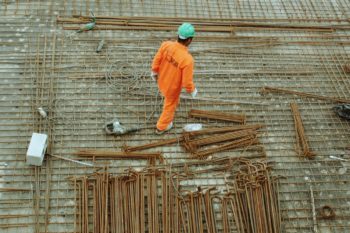OPINION: The sequence of events which has lead the Supreme Court to decide that Peter Whittle should not be penalised for his part in the Pike River disaster is not unexpected. It is rare in this country for individuals to be held accountable – particularly in the courts – for what amounts to gross negligence. And it applies to both private sector and public projects.
A similar result has emerged in the case of the collapse of the CVT building in Christchurch – a decision has been made that no one will be held criminally liable.
Several years ago, the same situation occurred with the Cave Creek disaster. In that case, both the Minister and the Chief Executive of Conservation eventually resigned but they did so on their own initiative and in their own time.

I think one of the outcomes of cases like this will be to change the legislation so that there is a clearer accountability for such disasters and people or organisations can be criminally charged – in other countries the latter is called “corporate negligence”. That may happen but I would guess that the legislation will not find all that much application.
The key problem is that individual accountability can usually only be readily established for small, self-contained actions. For example if I am careless on a windy but otherwise good quality stretch of road and have a head-on collision with a driver driving safely and correctly in the other direction, then I am clearly at fault. But the more complex the situation and the more the number of people involved, the murkier the situation becomes. In the case of very large projects such as a multi-story building the job of finding who is accountable for a collapse (for example) is very difficult. In most cases it is found that a number of people were at fault, eg the chief designer, the designers, the regulators who gave the consent, constructors etc. And it is often the case that there is not one outstanding cause – there are often multiple small lapses leading to an overall disaster.
Trying to solve this problem through overall legislation which tries to make one person or institution liable is not I think the best way to go. The results could be quite perverse, eg they may make those involved so risk averse, that costs and time delays increase to an unreasonable extent. And in some cases, there might be an outright refusal to do something because of the perceived risk. It could well be that the issues of the Pike River Mine re-entry will be caught by this problem, positive statements by the Ministers involved notwithstanding.
I think the answer lies at a lower level, in the sense of achieving a better level of competence in the components that make up a major project, together with a strong role and presence by the responsible regulator(s). I think standards have to be set and policed which are transparent and open to public scrutiny. There also has to be a preparedness by the participants to “police the borders”, i.e. to look at the inputs to their part of the projects, and what is done with their outputs, and check that they are up to scratch. If they are not, then blow the whistle!! It has been said before but I think we need to recognise and support the whistle blowers, particularly when they are participants in the overall piece of work. In a sense, there needs to be an acceptance of accountability which ie organic throughout the project.

All of this is fine but of course the result is still likely to be increased cost and time, and this may conflict badly with output goals eg the famous 150,000 houses they Government is committed to being constructed. The change in attitude required is that reasonable quality and safety need to come first, before quantity. If that is to occur then I think the Government needs to take the lead, even if it means compromising on election promises. And I think that clients at every level in the private sector have to follow that lead.
By Bas Walker
This is another of Bas Walker’s posts on GrownUps. Please look out for his articles, containing his Beachside Ponderings.









Join the Discussion
Type out your comment here:
You must be logged in to post a comment.